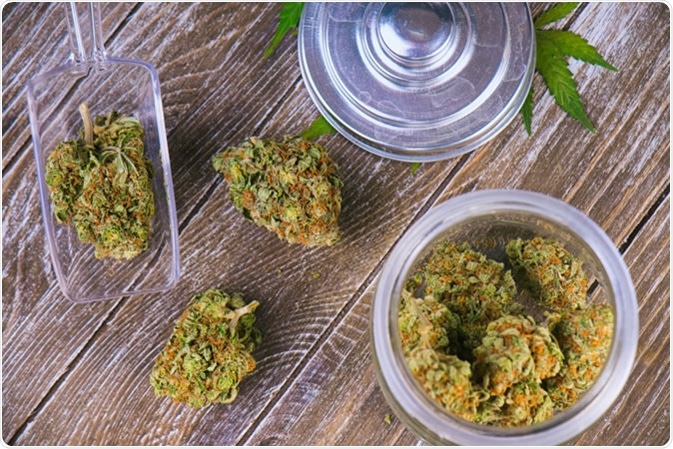
While marijuana has a lot of negative connotations, some studies have shown that it can actually be helpful for weight loss. For instance, it can reduce appetite and pain, and inflammation. But the real impact of marijuana is not yet clear. This type of research is only just starting to surface.
Reduce Pain
There is no definitive proof that cannabinoids in diet weed reduce the pain experienced by people suffering from chronic neuropathic pain. Still, the effects of these compounds have been studied extensively. In fact, a meta-analysis, which gathers published cannabis research, found that cannabinoids may have an analgesic effect when combined with opioids. In one study, patients with chronic neuropathic pain were given vaporized Cannabis in conjunction with either sustained-release morphine or oxycodone. The patients who received morphine and Cannabis were significantly less affected by pain than those who received oxycodone and a placebo.
The researchers conducted sensitivity studies to evaluate the impact of various trial designs. Crossover experiments and parallel group trials were among them. Additionally, they integrated the data for AEs across all situations. In the meta-analysis and meta-regression, the authors tested the associations between cannabinoids and the severity of pain. They used Stata version 10.
Cannabis as a medicine for chronic pain poses many challenges for healthcare providers and researchers. While it has been proven to be helpful in the treatment of chronic pain, it also has the potential to cause harm. This is why developing safer and more effective alternatives to opioids is essential.
Although many studies on cannabinoids have yet to be published, the evidence is still essentially promising. They have been shown to reduce pain in patients with AIDS and HIV, and some studies have also shown that they can help treat chronic pain, spasticity from MS, insomnia, and even anxiety. Before you buy thcv, make sure you’re well aware of the effects of this substance on your body.
Reduce Appetite
Cannabinoids in diet weed may reduce appetite and promote weight loss. Researchers found that cannabis users had lower BMIs and lower rates of obesity. These findings are significant because obesity has tripled in the past decade and is now a leading risk factor for diabetes. It’s also believed that cannabis cannabinoids, including CBD, help block CB1 receptors connected to metabolic problems and obesity.
Research on the effects of Cannabis has revealed that it can reverse the detrimental effects of the modern American diet. It also helps reduce the effects of an elevated omega-6/omega-3 fatty acid ratio. These two factors lead to obesity and other metabolic disorders. Additionally, Cannabis reduces over-stimulation of the CB1 receptor. The THCV in marijuana binds to this receptor, promoting homeostasis and appetite suppression.
The standard American diet can lead to a sluggish metabolism and weight gain. The high omega-6/omega-3 ratio in the diet can stimulate the over-activation of CB1 receptors, resulting in increased appetite and metabolic dysfunction. Marijuana may also be helpful for the treatment of anorexia caused by illness.
Studies have shown that Cannabis can decrease hunger symptoms, especially the “munchies,” and that CBD can offset the unpleasant effects of THC. Many cannabis users may notice reduced hunger after using a low-THC strain.
Reduce Inflammation
Cannabinoids in diet weed appear to inhibit inflammation in several ways. First, they suppress the immune response by inducing apoptosis in immune cells, such as macrophages. Second, they reduce the production of inflammatory signaling proteins, called cytokines, in the body. Reducing these signals slows down inflammation responses around cells and helps reduce symptoms.
The anti-inflammatory effect of cannabinoids in diet weed may help treat inflammation associated with several diseases. For example, the antioxidant effects of CBD have been shown to reduce inflammation in patients with inflammatory skin diseases, including psoriasis and atopic dermatitis.
This protective effect is based on the fact that cannabinoids regulate the response of colon tissues to excessive inflammation. They dampen the irritation of the smooth muscles caused by inflammation and suppress the production of proinflammatory cytokines. Modulating the activity of the cannabinoid system appears to be a promising therapeutic option for GI inflammation.
However, no published studies examine the effect of inhaled Cannabis on appetite. Inflammation is a significant cause of cancer pain and is resistant to opioid treatment. Two studies found that oral delta-9-THC could reduce pain in cancer patients. One study showed that it decreased pain intensity, while another reported appetite stimulation.
During the inflammatory response of the liver, CB1 receptors are upregulated. Activated CB1 receptors contribute to the profibrotic response. Inflammatory liver damage is also associated with increased hepatic 2-AG and anandamide levels. These compounds are anti-inflammatory drugs and can reduce the risk of liver disease.
